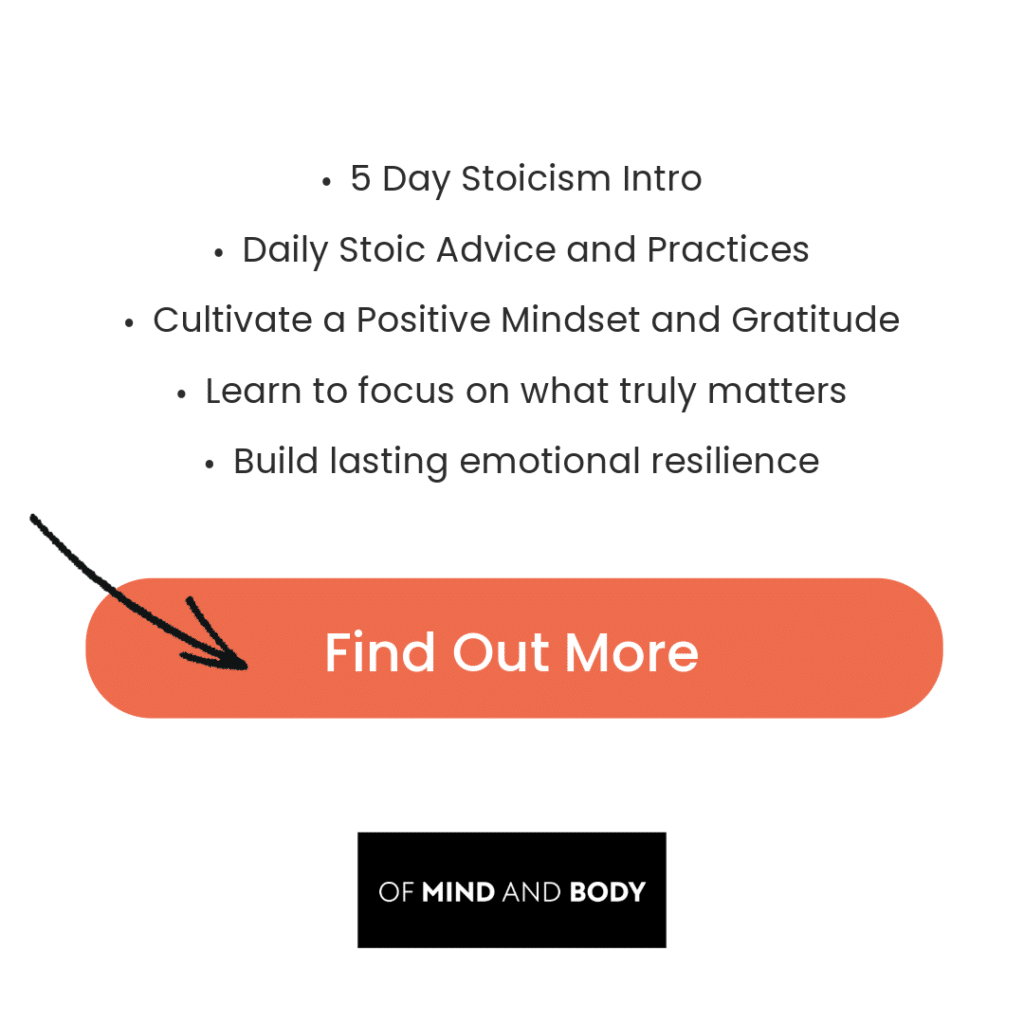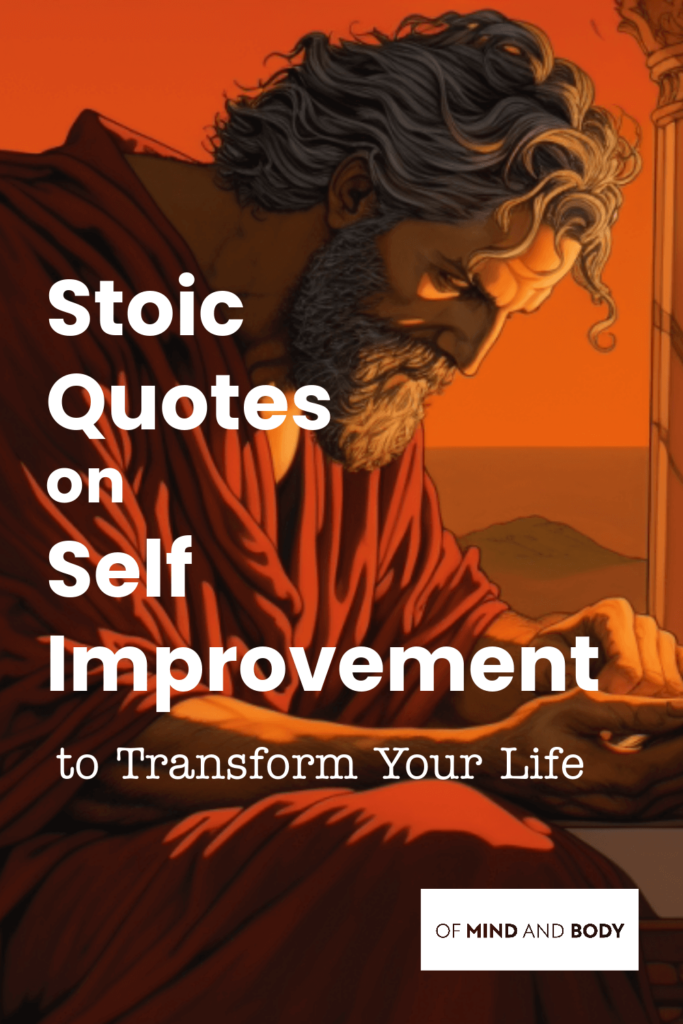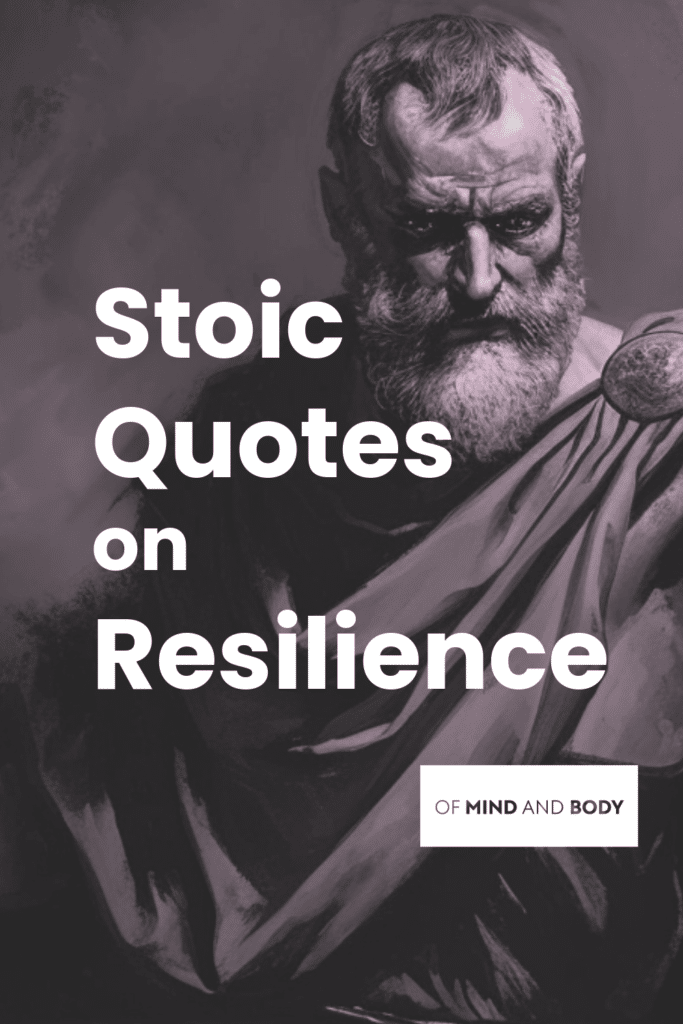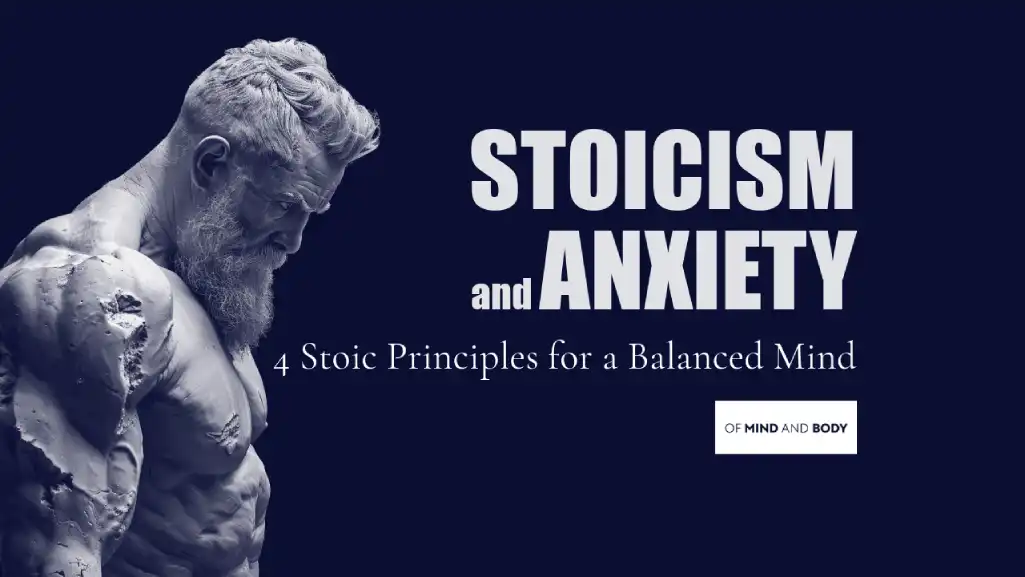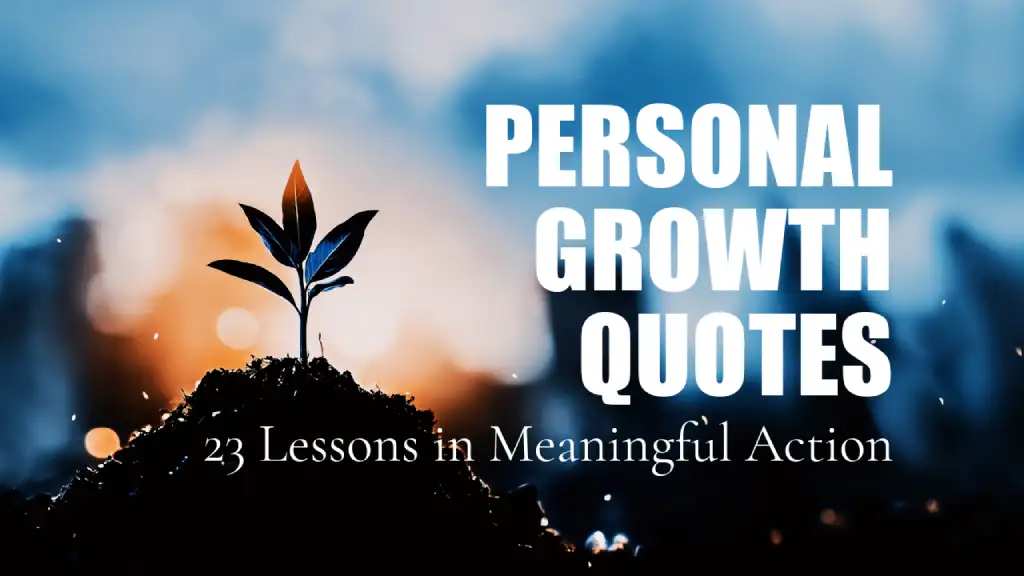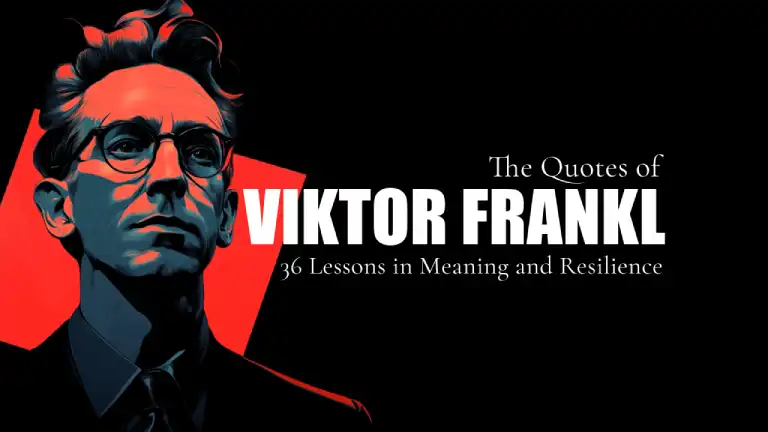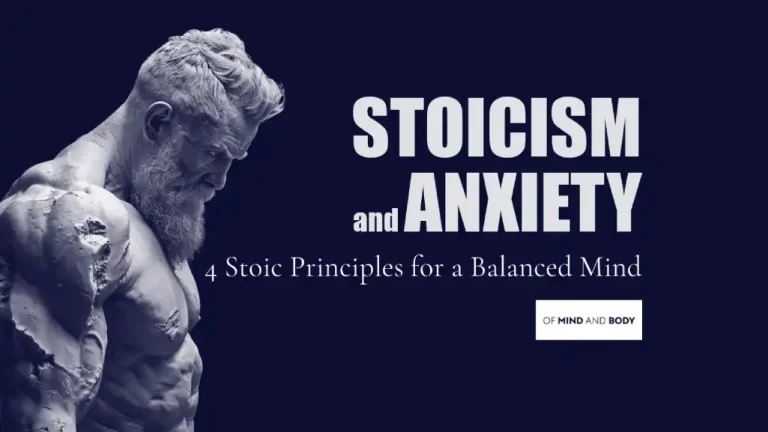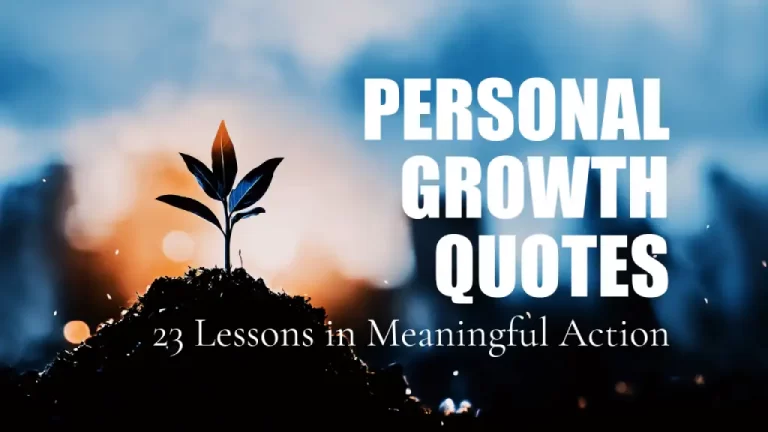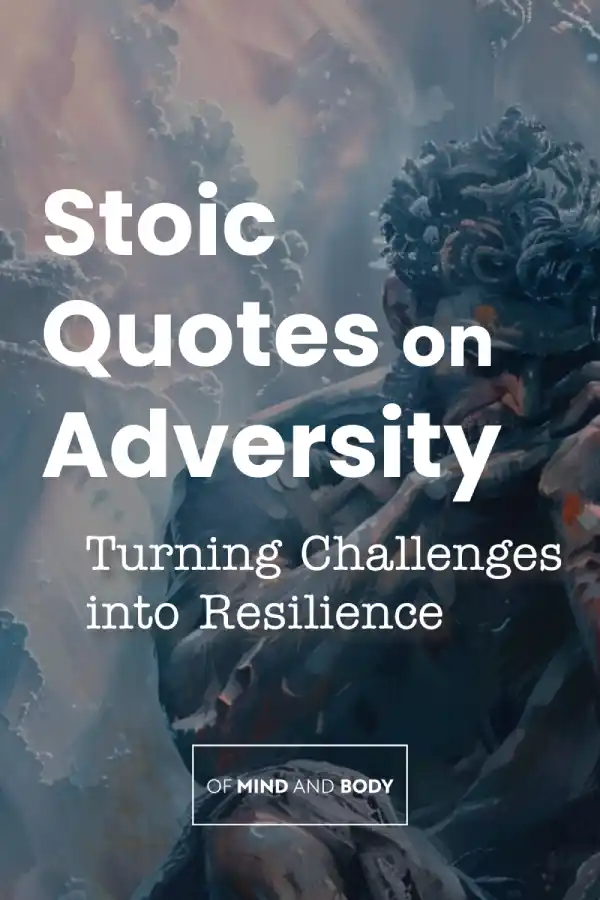
In the face of life’s inevitable challenges, the ancient wisdom of Stoicism provides a beacon of resilience and clarity. “Stoic Quotes on Adversity” delves into the profound sayings of philosophers like Marcus Aurelius, Seneca, and Epictetus, who taught that true strength is cultivated not by altering the world around us, but by transforming ourselves within.
These timeless insights offer not only comfort but also practical strategies for thriving amidst the trials and tribulations of everyday life. As we explore these enduring philosophies, we uncover the art of turning adversity into an opportunity for personal growth and inner peace, demonstrating that our responses to external challenges can define the quality of our lives far more than the challenges themselves.
“I laugh at those who think they can damage me. They do not know who I am, they do not know what I think, they cannot even touch the things which are really mine and with which I live.”
– Epictetus

The Wisdom Behind the Words
In this compelling reflection, Epictetus highlights a foundational principle of Stoic philosophy: the invulnerability of our inner selves to external challenges. He draws a clear line between the external—events that occur to us—and the internal—our interpretations and reactions to these events. Epictetus dismisses the idea that external forces can inflict real damage, emphasising that true harm can only arise internally, through our own acquiescence. This insight is profoundly freeing, suggesting that our true valuables—our thoughts, our integrity, our choices—are protected from the caprices of fate and the deeds of others. Our inner sanctum remains unbreachable as long as we retain mastery over our own minds and attitudes.
Thus, facing adversity is not merely a test of our endurance but a testament to our self-governance. When Epictetus laughs at those who think they can harm him, he is not trivialising their attempts; rather, he is asserting his existence above the fray of external misfortunes. This Stoic resilience shifts the paradigm from potential victim-hood to a stance of strength, where the only real defeats are those self-inflicted by losing grip on our mental composure. By adopting this philosophy, we gain not just a defence against adversity but a significant source of empowerment. Life’s tempests may swirl around us, but internally, we can remain calm and steadfast, anchored by the awareness that our most essential possessions—our inner lives—are secure and unaltered. This realisation equips us to meet life’s challenges not with trepidation or resentment, but with assurance and a grin, echoing the demeanour of Epictetus himself.
“Fire tests gold, suffering tests brave men.”
– Seneca
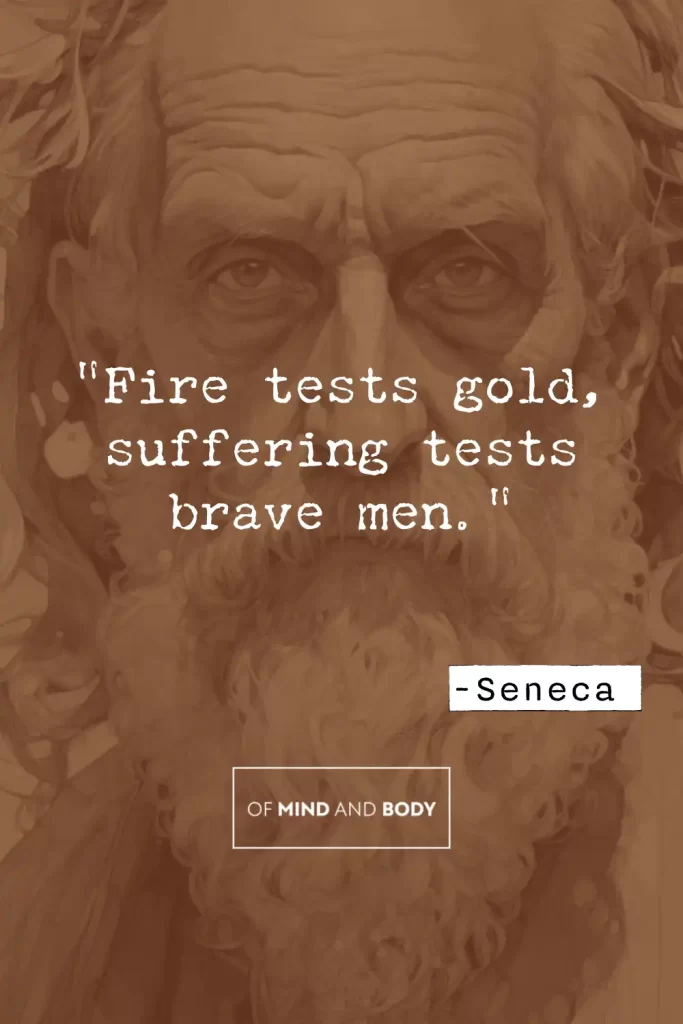
The Wisdom Behind the Words
In the furnace of existence, adversity serves not merely as an obstacle but as a crucible for personal development and resilience. The Stoic philosopher Seneca encapsulates this transformative dynamic with his assertion, “Fire tests gold, suffering tests brave men.” This analogy vividly illustrates how, akin to the way gold is refined in the blistering heat of a smelter—its impurities stripped away—human character is similarly honed through the rigours of hardship. This process reveals a fundamental truth about human resilience: it is not a pre-existing trait but one that is cultivated in the throes of adversity. Thus, adversity should not be avoided or feared but welcomed as a vital ingredient in the development of character. It is during our most trying times that our true mettle is tested, much like gold that reveals its richest sheen only when subjected to the highest flames.
This view invites us to reinterpret the challenges we encounter. Rather than perceiving them as simple misfortunes, we can understand them as catalysts for personal transformation. Each difficulty, each moment of discomfort, is pregnant with the possibility to unearth hidden strengths, to build endurance, and to enhance empathy. By enduring and surmounting adversity, we do not merely demonstrate our resilience; we expand it, emerging not as we were but as we aim to be—more robust, more enlightened, and more refined. Therefore, when faced with life’s inevitable trials, consider each one as a milestone on the journey to a more profound and polished existence, reminiscent of the gold that achieves its greatest brilliance only after enduring the most intense fires.
“If you really want to escape the things that harass you, what you’re needing is not to be in a different place but to be a different person.”
– Seneca

The Wisdom Behind the Words
In this insightful quote, Seneca illuminates a profound truth about human resilience and the nature of confronting adversity. Often, when faced with challenges or discomfort, our first impulse is to alter our environment—to escape the sources of our distress. Yet, Seneca proposes that true liberation from our troubles does not arise from changing our location but from transforming ourselves internally. This wisdom encourages us to introspect and view personal growth as the key to resolving external issues. It calls on us to cultivate virtues like patience, courage, and perspective, which empower us to navigate and surmount life’s inevitable hurdles.
This viewpoint is profoundly empowering, as it returns control to our own hands. Rather than being buffeted by life’s random circumstances, we are urged to develop a more stoic, reflective, and grounded self. By doing so, we can change our responses to adversity, not the adversity itself. This pivot from external to internal transformation presents both a challenge and an opportunity to build a self that does not seek to flee from life’s difficulties but is equipped to flourish amidst them. Through embracing these Stoic quotes on adversity, we discover that the most significant transformations occur not by shifting our physical surroundings but by expanding the inner boundaries of our capacity to cope with whatever life presents.
“It’s not what you bear, but how you bear it.”
– Seneca
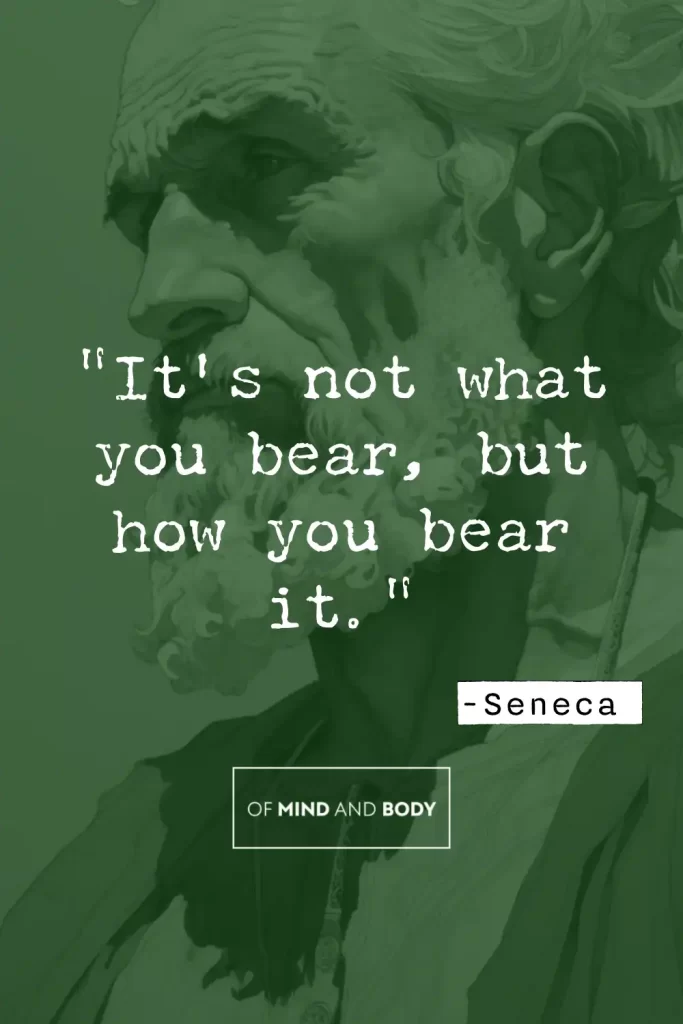
The Wisdom Behind the Words
This insight from Seneca, a seminal figure in Stoic philosophy, highlights a fundamental tenet of Stoicism: our resilience in the face of adversity hinges not on the external challenges we encounter, but on our internal responses. Life invariably presents us with trials—loss, failure, disappointment. Yet, it is our reaction to these trials that defines our character and shapes our happiness. Seneca encourages us to shift our focus from the burdens we bear to the manner in which we bear them. This shift in perspective not only empowers us but also redirects our attention from the uncontrollable external circumstances to the controllable realm of our internal responses. By perceiving adversity as a crucible for the soul, we can reframe our struggles as opportunities for personal growth and strengthening of spirit.
In practical terms, adopting this mindset means approaching adversity with equanimity, patience, and insight. When setbacks arise, rather than succumbing to frustration or despair, we can choose to act with intention and reflection. This approach does not negate the pain or difficulty inherent in such situations but allows us to navigate them with dignity and composure. By internalising these Stoic quotes on adversity, we not only undergo profound personal development but also gain a richer understanding of life’s vicissitudes. Embracing this philosophy fosters resilience, preparing us to meet future challenges with enhanced strength and confidence, and paving the way for a more rewarding life.
“The impediment to action advances action. What stands in the way becomes the way.”
– Marcus Aurelius
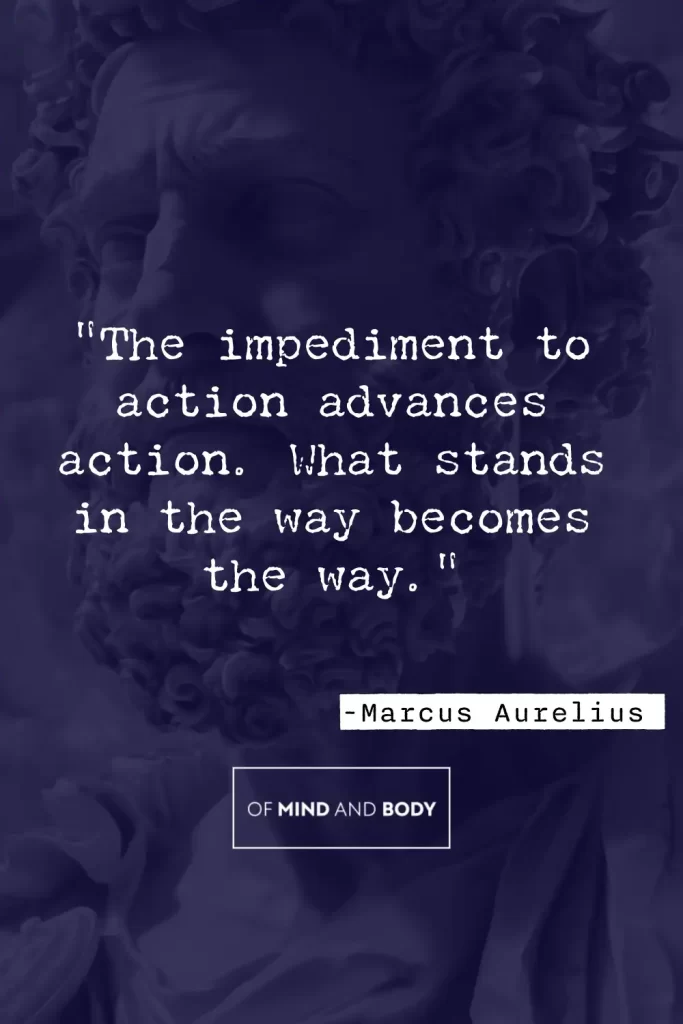
The Wisdom Behind the Words
In this compelling reflection, Marcus Aurelius articulates a fundamental tenet of Stoic philosophy: obstacles are not merely hurdles to be endured but opportunities for transformation. His assertion that “The impediment to action advances action. What stands in the way becomes the way,” serves as a powerful reminder that adversity should not prompt retreat but rather a deeper engagement. This shift re-frames our narrative from one of victim hood to one of empowerment. Challenges are not obstructions on our path; they are essential elements of the path itself. This reimagined perspective invites us to radically embrace difficulties, using them as catalysts for growth and proactive change.
When confronted with adversity, it is natural to feel hindered or overwhelmed. Yet, adopting a Stoic approach compels us to explore not why an obstacle blocks us, but how it can drive us forward. Each challenge becomes a means for self-reflection and evolution, urging us to innovate and persist. This mindset does not trivialise the pain or complexity of challenges but provides a strategy to traverse them with intention and mastery. By redefining our interaction with obstacles, we discover that the very situations that seemed to weaken our resolve can actually sharpen and shape our paths. Through this lens, adversity is transformed from a feared adversary to an invaluable partner in our pursuit of personal and professional growth.
“It is not death that a man should fear, but he should fear never beginning to live.”
– Marcus Aurelius
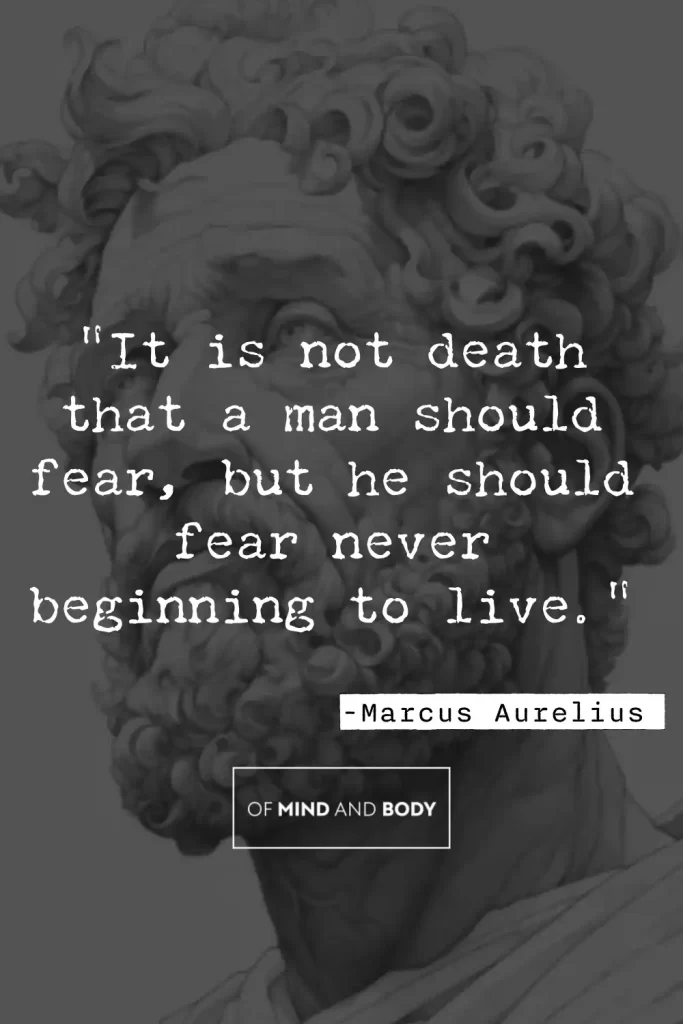
The Wisdom Behind the Words
In this reflective passage, Marcus Aurelius delves into a core Stoic belief: life’s essence extends beyond mere existence—it demands a full and meaningful engagement. The emperor-philosopher cautions us against the immobilising fear of death, a pervasive anxiety that can detract from life itself. He argues that the true terror should not stem from life’s inevitable end, but from the possibility of reaching that terminus without having fully realised our life’s potential. Within the realm of adversity, this insight serves as a potent reminder that life’s challenges are not merely hurdles but are essential elements of a richly lived life. They offer not only tests of our virtues but also opportunities for growth and a means to manifest our values in action.
Adversity should thus be met not with withdrawal but with a robust engagement with life. Each challenge is an opportunity to exercise our will and to build resilience. Aurelius urges us to scrutinise our existence: Are we simply enduring life, constrained by fears of potential misfortunes, or are we actively shaping a meaningful existence, embracing each challenge that comes our way? By opting for the latter, we not only embody Stoic ideals but also realise our fullest human potential. This approach fundamentally alters our interaction with adversity, pivoting our focus from merely evading death to wholeheartedly embracing life. This shift not only enhances our existence with purpose and depth but also infuses it with a vibrant tenacity. In this way, Stoic quotes on adversity remind us that our greatest trials are also our most profound opportunities for personal affirmation and growth.
“To love only what happens, what was destined. No greater harmony.”
– Marcus Aurelius
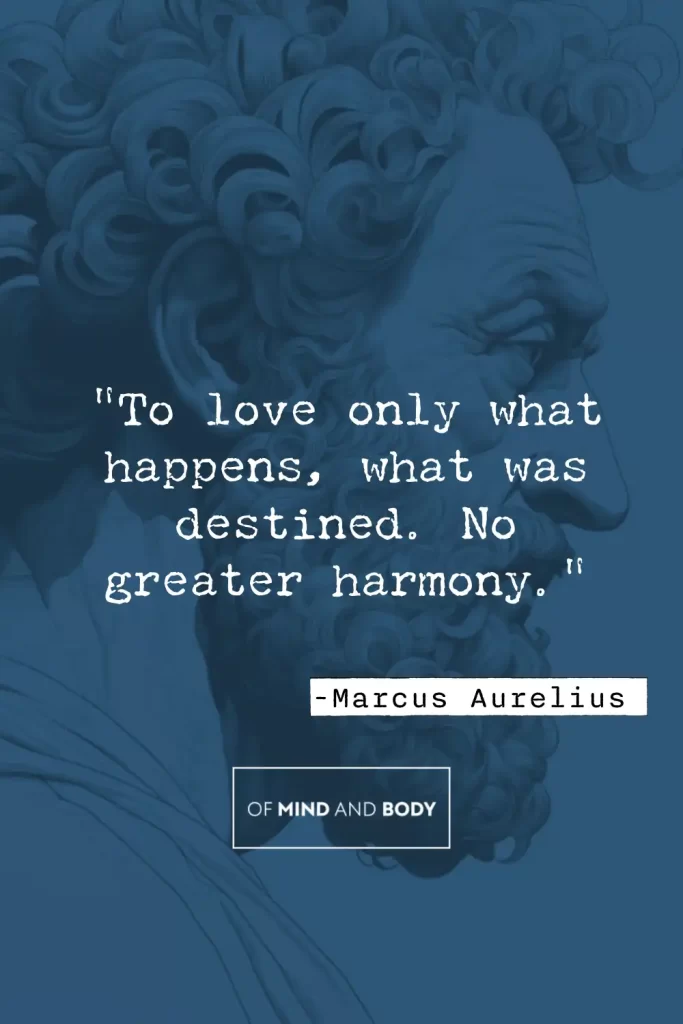
The Wisdom Behind the Words
In this eloquent articulation, Marcus Aurelius captures a foundational principle of Stoic philosophy: the acceptance of fate, or amor fati. This concept transcends mere resignation to life’s vicissitudes; it advocates for a profound and loving acceptance of them. To “love only what happens, what was destined” is to welcome each moment of existence not as a chance event, but as an integral part of the universal order. This viewpoint cultivates inner tranquillity by aligning one’s inner peace with the unchangeable forces of nature. Through this lens, Stoic quotes teach us that adversity is not merely an obstacle but a gateway to opportunity, approached not by rejecting or minimising hardship, but by recognising that each event has its place in the vast mosaic of life.
Embracing this philosophy transforms our approach to life’s challenges, offering freedom and empowerment. By ceasing to resist the unavoidable and viewing adversity as a vital, formative element of our existence, we awaken a more resilient and hopeful aspect of ourselves. This altered perspective does not trivialise our struggles; instead, it equips us to approach them with dignity and fortitude. Loving what is destined enables us to endure and evolve, reconciling with our past and advancing into the future with assurance. This state of harmonious acceptance encourages us to inhabit each moment fully, enhancing our life’s journey and deepening our insight into both our own nature and the broader world.
“Objective judgement, now at this very moment. Unselfish action, now at this very moment. Willing acceptance—now at this very moment—of all external events. That’s all you need.”
– Marcus Aurelius
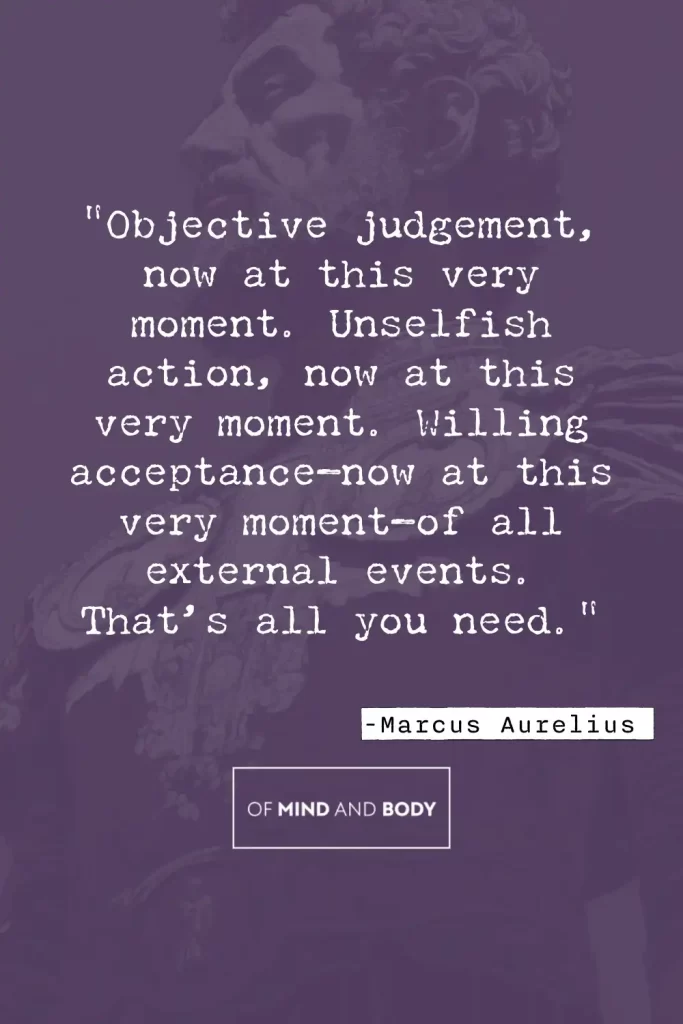
The Wisdom Behind the Words
In the face of adversity, Marcus Aurelius presents a timeless blueprint for resilience: “Objective judgement, now at this very moment. Unselfish action, now at this very moment. Willing acceptance—now at this very moment—of all external events. That’s all you need.” This passage distils the essence of Stoic philosophy, which calls for a focus on the present and a response to life’s challenges with clarity, generosity, and acceptance. Objective judgement demands that we view the world as it truly is, free from biases and emotional distortions. This clarity is essential in navigating adversity, enabling us to differentiate between what is within our control and what is beyond it, and to direct our energies accordingly.
Unselfish action and willing acceptance are critical extensions of this lucid awareness. In challenging times, the instinct may be to turn inward and guard one’s own interests, but Aurelius champions a broader, altruistic perspective that enhances our interactions and decisions. This not only benefits others but also strengthens our own resilience, creating a cycle of positive reinforcement and support. Willing acceptance is not about passive surrender; it is an active engagement with reality, acknowledging it without wasting energy on frustration or regret over the uncontrollable. This Stoic approach, encapsulated in quotes on adversity, empowers us to weather life’s storms with dignity and composure, transforming challenges into opportunities for personal development and affirming our capacity to shape our lives through the quality of our responses.
“Throw me to the wolves and I will return leading the pack.”
– Julius Caesar

The Wisdom Behind the Words
This quote, often attributed to Julius Caesar, captures a profound Stoic ethos: the transformation of adversity into advantage. The phrase “thrown to the wolves” evokes a scenario of extreme danger and isolation, suggesting an almost certain demise. However, the assertion that one will “return leading the pack” illustrates a remarkable degree of resilience and adaptability. It serves as a powerful metaphor for excelling under pressure and converting apparent defeat into a chance to lead. This perspective compels us to see challenges not merely as hurdles but as opportunities for growth and profound transformation.
In moments of hardship, this quote reminds us that our reactions to challenging circumstances are more defining than the circumstances themselves. It upholds the notion that true leadership is often sculpted in the fires of trial. When faced with difficulties, adopting this mindset shifts our focus from passive endurance to active mastery over our conditions. This principle is not limited to legendary figures or epic challenges but also resonates with anyone encountering personal or professional setbacks. Adopting this stance enables us to approach life’s most daunting challenges with bravery and to emerge not just intact but enhanced, in a stronger position of leadership and influence. These Stoic quotes on adversity inspire us to seize the latent opportunities in difficult times, urging us to lead with assurance and foresight, regardless of the severity of the situation.
“When we are no longer able to change a situation, we are challenged to change ourselves.”
– Viktor Frankl
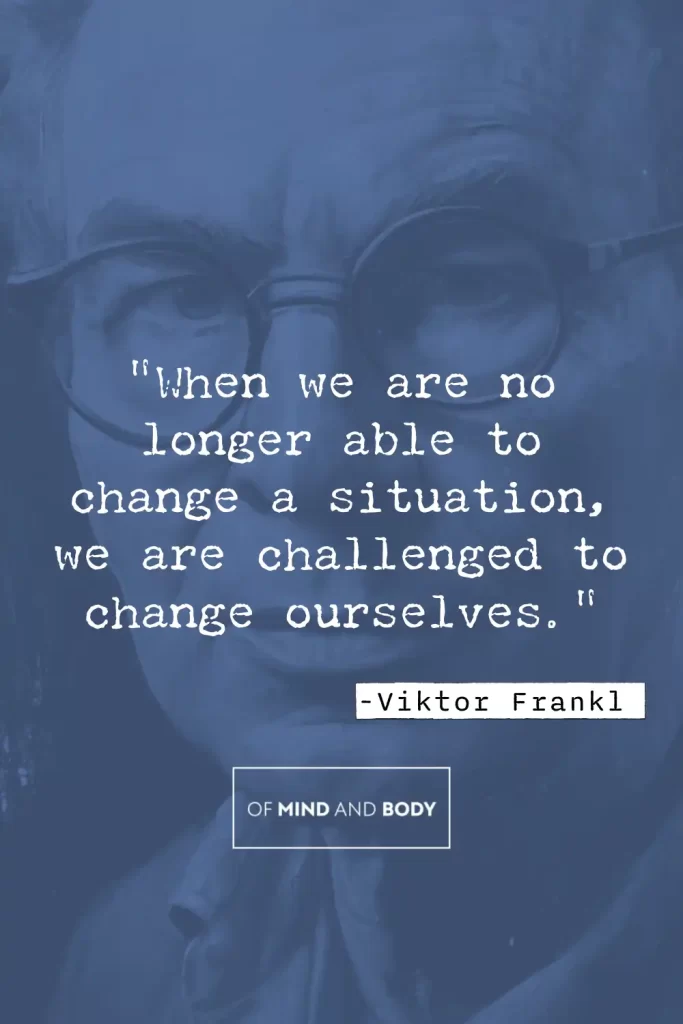
The Wisdom Behind the Words
Viktor Frankl’s incisive remark, “When we are no longer able to change a situation, we are challenged to change ourselves,” highlights a central tenet of Stoic philosophy: control is fundamentally internal. This perspective becomes especially salient when navigating adversity. Life frequently presents us with scenarios that are steadfast and unyielding—environments where external forces are impervious to our efforts and seem to mock our desires for a different outcome. In these instances, Frankl advises a significant shift in viewpoint: rather than wasting energy trying to modify the immutable, we are encouraged to transform ourselves. This inward transformation demands a reassessment of our attitudes, beliefs, and reactions to the world around us. It involves building resilience, deriving meaning from our suffering, and recalibrating our objectives to better fit our changed circumstances.
This philosophical approach goes beyond mere endurance of difficulties; it calls for an active engagement with them as opportunities for personal evolution and discovery. Accepting the challenge to self-modify not only taps into deeper layers of our potential but also often leads to a profound sense of peace and fulfilment. Within the furnace of adversity, the most genuine version of ourselves can take shape, honed by the very challenges we once deemed overwhelming. This process of transformation offers not just a route to endure but a strategy to flourish, channelling our inner resources to develop an unbreakable spirit that external turmoil cannot shatter. Therefore, amidst the inevitable upheavals of life, this call to self-transformation stands as a powerful affirmation of our capacity to adapt, evolve, and extract meaning from the whirlwinds of chaos.
Final Thoughts
I hope you have enjoyed this collection of Stoic Quotes on Adversity. We are starting to build an extensive library of Stoic Quotes, exploring their deeper meaning and unravelling how their wisdom can be applied in today’s hectic world. Why not try some of our other curated Stoic Quotes lists:


